Palnaati Yudham is a film of genre Drama with Tadepalli Lakshmi Kanta Rao
Palnaati Yudham (1966)
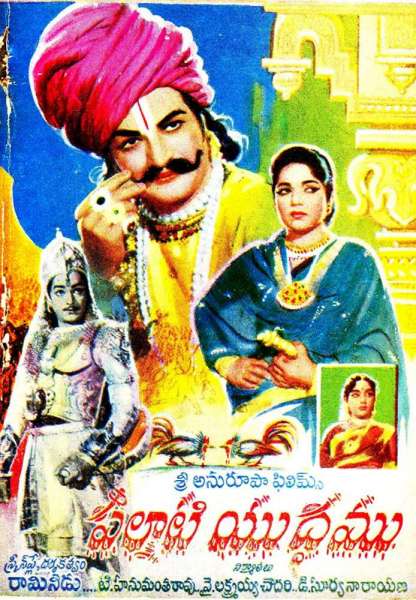
If you like this film, let us know!
Rating70%










Palnati Yuddham is a 1966 historical film based on the battle of Palnadu. The film stars N. T. R. and Bhanumati in the lead roles. The film won National Film Award for Best Feature Film in Telugu - certificate of merit in 1967 Also Bhanumathi Ramakrishna got Rashtrapati Award for her role.
Actors

Tadepalli Lakshmi Kanta Rao
(Nalagamaraju)

Bhanumati Ramakrishna
(Nagamma)

Jamuna

Dr. Prabhakar Reddy
(Kannama Dasu)
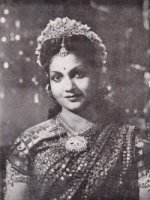
Anjali Devi
Comments
Leave comment :
Suggestions of similar film to Palnaati Yudham
There are 248 films with the same actors, 72705 with the same cinematographic genres (including 12 with exactly the same 5 genres than Palnaati Yudham), to have finally 70 suggestions of similar films.If you liked Palnaati Yudham, you will probably like those similar films :
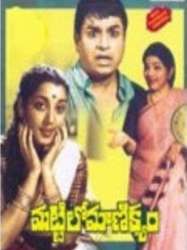
Mattilo Manikyam (1971)
Actors Chalam, Jamuna, Bhanumati Ramakrishna, Dr. Prabhakar Reddy, Dhulipala, Saakshi Ranga Rao
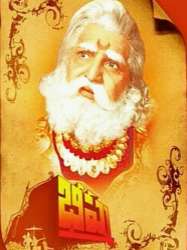
Bhishma (1962)
Genres Drama, Historical
Actors Anjali Devi, Haranath, Gummadi Venkateswara Rao, Shobhan Babu, Dhulipala, Tadepalli Lakshmi Kanta Rao
Rating76%






Tenali Ramakrishna (1956)
Directed by B.S. Ranga
Genres Drama, Biography, Comedy, Historical
Actors Akkineni Nageswara Rao, Sivaji Ganesan, Jamuna, Chittor V. Nagaiah, Bhanumati Ramakrishna, Mikkilineni
Rating76%





The Deccan Sultans of Berar, Ahmednagar, Bidar, Bijapur and Golconda who the splinters from the erstwhile Bahmani Sultnate now unite with the common purpose to defeat of Krishnadeva Raya and the conquest of the prosperous Vijayanagaram. They send their stooge Kanakaraj to assassinate Krishnadeva Raya, but Kanakaraj fails in his mission and is put to death.
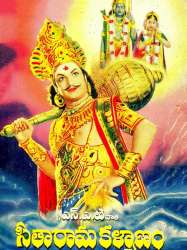
Seetha Rama Kalyanam (1961)
Directed by N. Trivikrama Rao
Genres Drama, Musical
Themes Films based on mythology, Films about religion
Actors Haranath, Tadepalli Lakshmi Kanta Rao, Chittor V. Nagaiah, Chhaya Devi, B. Saroja Devi, Gummadi Venkateswara Rao
Rating79%





The story primary concentrates on Ravana, a key character in Ramayana. It begins with the birth of Lord Rama and ends with his Marriage with Seetha.

Navaratri (1966)
Directed by Rama Rao Tatineni
Genres Drama, Comedy, Romance
Actors Akkineni Nageswara Rao, Kommareddy Savitri, Kongara Jaggaiah, Dr. Prabhakar Reddy, Relangi Venkata Ramaiah, Chalam
Rating67%





The film opens with the narrator explaining that there are nine types of human behaviors (Navarasam) such as Wonder, Fear, Compassion, Anger, Equanimity, Disgust, Elegance, Bravery and Bliss and that Nageswara Rao's nine roles represents one character per role.
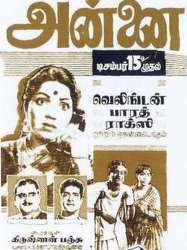
Annai (1962)
, 2h30Genres Drama
Actors Bhanumati Ramakrishna, Sowcar Janaki, Samarla Venkata Ranga Rao, J. P. Chandrababu, Haranath, Nagesh
Rating63%





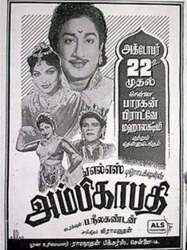
Ambikapathy (1957)
, 2h29Genres Historical
Actors Sivaji Ganesan, Bhanumati Ramakrishna, Anjali Devi, Chittor V. Nagaiah, M. N. Nambiar, Rajasulochana
Rating62%





This story, passed on through centuries through traditional verse and folklore, dates back to the early 12th century during the reign of Kulothunga Chola I. The movie version of the story is this: Kambar, the kavichakravarthi whose name in enshrined forever as the author of Ramavatharam, the Tamil version of Ramayana, is a poet in Kulothunga’s court in Urayur. Despite his erudite scholarship, deep learning of Sanskrit and Tamil and extraordinary poetic skills, Kamban remains a humble, unassuming, deeply pious man, and a loyal subject of the King. All this earns Kamban a special place in the heart of Kulothunga who treats him with utmost deference and affection. Ottakoothar is another great poet in the King’s court, and Kamban’s ascent in the firmament and the King’s unabashed admiration for Kamban’s poetry has Ottakoothar simmering in jealousy.

Bhaktha Prahlada (1967)
Genres Drama
Themes Films based on mythology, Films about religion
Actors Roja Ramani, Samarla Venkata Ranga Rao, Anjali Devi, Haranath, Balamurali Krishna, Relangi Venkata Ramaiah
Rating81%





See The Story of Narasimha for original story.

Genres Drama
Themes Seafaring films, Transport films
Actors Gemini Ganesan, Bhanumati Ramakrishna, Anjali Devi, Rajasulochana
Rating66%





Manimekalai (P. Bhanumathi) is the daughter of Madhavi (Sandhya) and Kovalan, grows up to a beautiful woman. Since, her grandmother Chitrapathi (T. V. Kumudhini) and mother Madhavi being renowned courtesans, Manimekalai too learns from them and is accomplished in music and dance. While Madhavi is deeply disturbed by Kovalan’s cruel death and glowing reports of Kannagi’s chastity bring about changes in her moral outlook, withdrawing from the life of a courtesan, she brings up her daughter in an atmosphere of renunciation and spirituality. Prince Udhaya Kumaran (T. R. Mahalingam) is smitten by Manimekalai’s bewitching beauty and professes his love for her. However, destiny had other plans for Manimekalai. The sea Goddess Manimekalai, carries her away from Kaveripoompattinam to the southern island of Manipallavam in Naga Nadu. Manimekalai wakes up from her trance and is mystified at the alien surroundings. While wandering about the island Maṇimekalai comes across the Dharma-seat, the seat on which Buddha had taught and appeased two warring Naga princes, and placed there by the God Indra. Those who worship it miraculously know their previous life. Manimekalai automatically worshiped it and recollects what has happened in her previous life.She comes to a place sanctified by Buddha, and in flash, revelations of her earlier birth dawn on her. She learns that Udaya Kumaran was her husband in her previous birth. Goddess Manimekalai teaches her the art of astral travel and the secret of metamorphosing herself into another being. Goddess Tivatilakai (Deeva-Teelakai or Dvīpa Tilakā) appears now before Manimekalai and inculcates in her the doctrines of Buddhism. Following the instructions of the Goddess, Manimekalai goes around a pond from the middle of which a bowl emerges and places itself on Manaimekalai’s outstretched hands. This is the Amudhasurabhi (cow of abundance), the cornucopia that would never deplete which will always provide food to alleviate hunger.
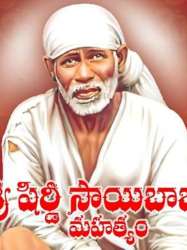
Sri Shirdi Saibaba Mahathyam (1986)
Genres Drama, Biography
Actors Vijayachander, Chandra Mohan, J. V. Somayajulu, Anjali Devi, Tadepalli Lakshmi Kanta Rao, Sarath Babu
Rating75%





Bhagwan Shri Sai Baba lived in British India. He was initially shunned by both Hindus and Muslims, especially by Hindu Bal Bhate. Sai was a Muslim and Bal Bhate forbade him to enter any Temple. Rohila, a Muslim, who thought Sai was desecrating the local Masjid by performing Hindu prayers and incantations and attempted to kill Sai. Then he saw both the Allah and Bhagwan in Sai and became a devotee. When Sai was ready to give up his body and resurrect himself after 3 days, just like Lord Jesus, a disbelieving Bal had wanted Sai's body to be cremated within 24 hours - only to find out that Sai had indeed risen, and also became his devotee. Bhagoti, a leper, who was cured by Sai became his follower. Though Sai had no relations, he did call Tatya's mother his sister; Tatya his maternal nephew; a devotee named Laxmi as his daughter, and an elderly woman as his mother. Sai displayed his true form and opulence to another devotee, Nana Chandorkar. Sai lived in a rebuilt Masjid and urged his devotees to pray God, as the Creator and to love and respect all living beings. He begged for alms daily so that he could collect sins and wash them away. He always uttered 'Allah Bhala Kare' and 'Bhagwan Bhala Kare' to both Muslims and Hindus alike. He appeared in a multitude forms to his deities (Lord Jesus, Guru Nanak Devji, Allah, Bhagwan Shri Ganesh) to cater to the various tastes of devotees. Sai was also fond of Nanavli, a mentally challenged devotee, who often challenged Sai. He was one of the few who really understood and accepted Sai as Vishnu's Avatar. Sai appeared simultaneously in a wealthy man's and Nana's dreams and called upon them to construct a Mandir of Bhagwan Shri Krishna. While the construction was under way, Sai prophesied the death of Tatya. Shortly thereafter while bequeathing the nine coins symbolizing nine virtues to Laxmi (which depict Sravan, Kirtan, Smaran, Padaseva, Archana, Namaskar, Dastan, Samveta, & Atmanivrdan) Sai was ready to demonstrate to his devotees why they should not worry about Tatya's impending demise.
 Connection
Connection